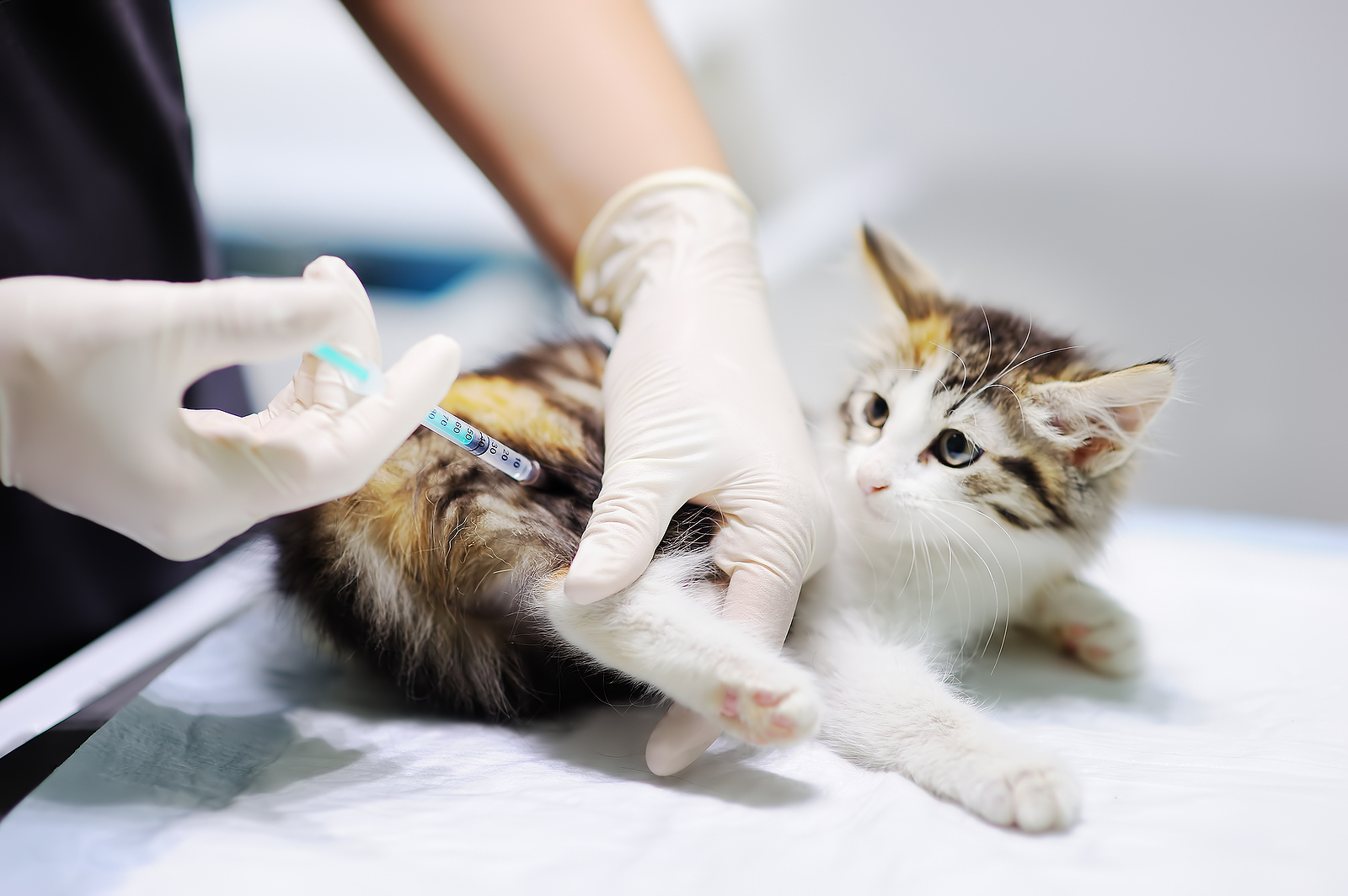Table of Contents
Knowing what cat vaccines to give your kitty can feel confusing. The long term effects of vaccines has been a topic that stirs up fear and debate in both people and animals. While it is my belief that the cause of cancer in cats is multi-factorial, there is one type of cancer in cats that has been proven to be caused by vaccines.
If you are lucky enough to be loved by a cat, you deserve to understand the benefits and risks associated with vaccinating your kitty.
What are Vaccine Associated Sarcomas?
Vaccine associated sarcomas are a type of aggressive cancerous tumor that forms at the vaccine site of cats. This tumor can arise within a few months to a few years after a vaccination and will grow aggressively.
These tumors are treated with surgery and radiation. Treatment is only successful if good surgical margins are obtained. To help preserve the life of cats who develop this type of sarcoma, cat vaccines are now administered very low on the leg or tail so that surgical removal of the limb is possible if a vaccine associated sarcoma should form.
How do I prevent Cancer in Cats from Vaccines?
- Only give vaccines that your kitty needs. By lessening the frequency of vaccination, we can reduce the risk of sarcomas. To learn more about how to decide what vaccines your kitty needs, check out The Truth About Vaccines in Cats.
- Choose three year vaccines over one year vaccines. Except for your kitty’s first Rabies vaccine, choose a three year vaccine when possible.
- Choose non-adjuvanted vaccines. These vaccines are made without adjuvant and are thought to lower the risk of vaccine associated sarcomas. An adjuvant is the part of the vaccine that is used to stimulate an immune response. I use PUREVAX by BI.
Should I stop vaccinating my cat?
Not necessarily! Vaccine associated sarcomas occur in about 4 out of every 10,000 kitties. Vaccines protect your kitty against deadly diseases. If you have a kitty that goes outside and has the possibility of interacting with other animals, it is imperative that you protect them (and yourself) from deadly viruses like Rabies virus. All kittens should be properly vaccinated against Feline Panleukopenia, a very lethal and contagious virus. It is important to understand each vaccine your kitty receives, the risk of your kitty contracting the virus and the risk of your kitty being unvaccinated. Vaccine conversations are an ongoing dialogue with your veterinarian and what lifestyle risks your kitty faces should be discussed at each wellness visit.
How do you vaccinate your kitties? I would love to hear from you! Leave a comment below.
Warmly,
Dr. Angie


